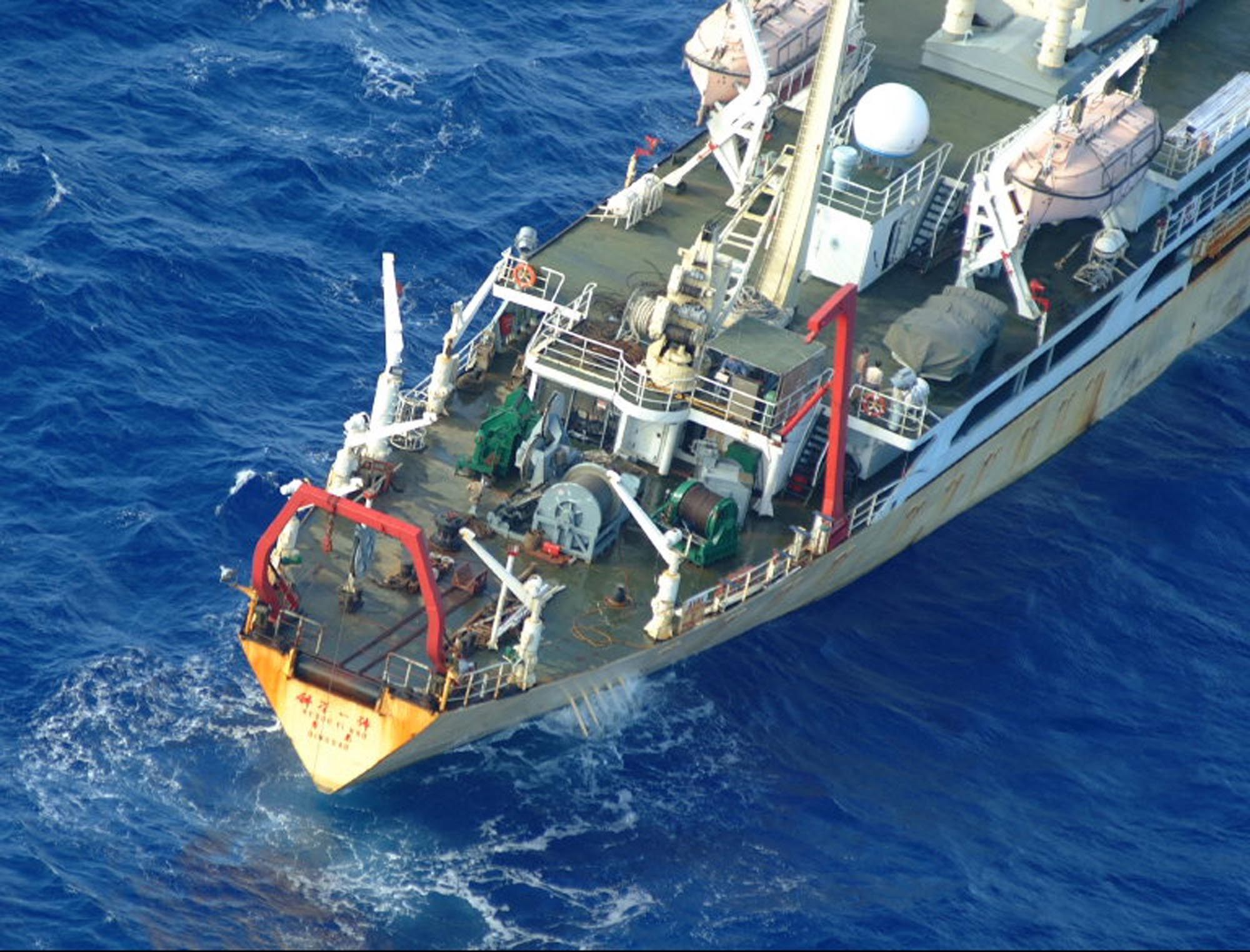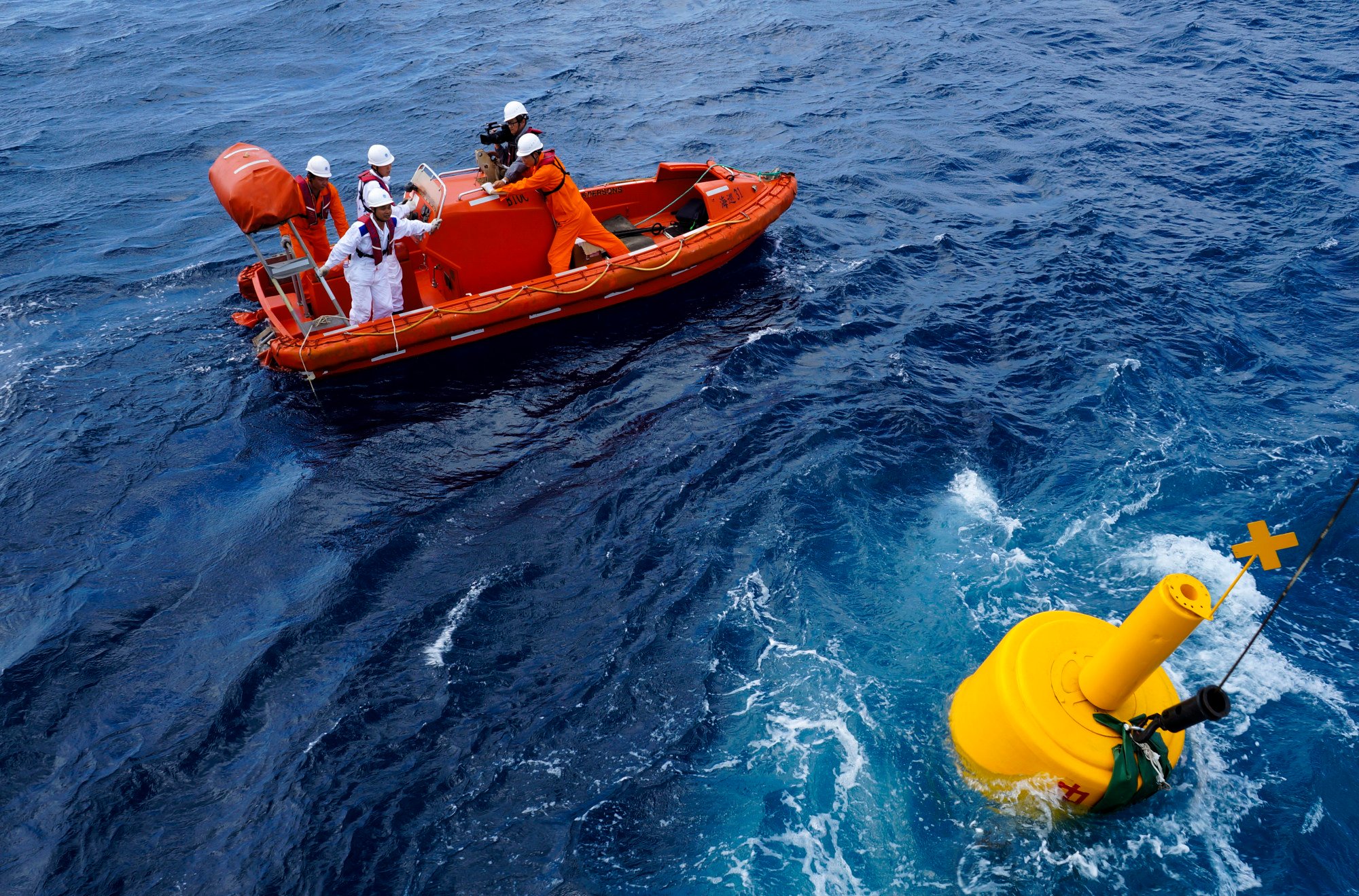Japan wants answers over Chinese buoy found in remote contested waters
“It is regrettable that a buoy was placed without providing details of its purpose,” Tokyo’s top government spokesman Yoshimasa Hayashi said on Friday, vowing that Japanese authorities would closely monitor the situation.
Experts say the dispute over Okinotorishima underscores the broader challenges Asian nations face in defining and defending their maritime boundaries in an era of growing competition over strategic waterways and resources.
“Japan is ticked off about this, but there is an argument that it does not have a particularly strong case,” said James Brown, an international-relations professor at Temple University’s Tokyo campus.
He pointed out that a nation’s EEZ is not sovereign territory, but rather an area off its coast where it has exclusive rights to economic activities.
“But others are free to enter those waters and, by some interpretations, other countries are even able to carry out military exercises in those waters, for example,” he said.
The debate centres around whether Japan can claim the waters 370km in every direction around Okinotorishima as its EEZ. The tiny atoll is largely submerged at high tide, with only two small islets measuring just 9.4 square metres remaining above the water line – and even those were built up with concrete by Japan, Brown told This Week in Asia.
“This is not an island by any stretch of the imagination, and when Japan criticises China for building on islands in the South China Sea and claiming those … it’s easy to see why Tokyo can be accused of hypocrisy,” he said.
In response to Tokyo’s protests, observers say Beijing is likely to argue that it has the right to station the device in the area to carry out research.

Toshimitsu Shigemura, a professor of politics and international relations at Tokyo’s Waseda University, said Beijing has likely paid close attention to recent deep-sea research confirming the presence of an estimated 230 million tonnes of polymetallic nodules containing valuable minerals like cobalt, nickel, and manganese in nearby waters.
“China is interested in securing access to these critical minerals and will be closely monitoring Japanese research and, in the future, recovery efforts from the seabed,” Shigemura said.
The buoy could be equipped to gather weather data as well as information on ocean conditions, which would be valuable intelligence for the Chinese military, the professor suggested.
Japan is very angry that the buoy was placed there without China even telling Tokyo
“Japan is very angry that the buoy was placed there without China even telling Tokyo, but there is not much that Japan can do other than filing a diplomatic complaint because, under international law, what they have done is not illegal.”
Brown echoed this assessment, saying he would be “astonished” if Japan tried to claim the buoy was engaging in illegal economic activities and that Tokyo had the legal right to remove it.
“The priority for Japan is to maintain stable relations with China, and the last thing they want right now is to provoke a diplomatic crisis [over this incident],” he said.

This incident caused a sharp downturn in China-Japan relations, with Beijing demanding the release of the fishermen and cancelling planned high-level talks. Protests also erupted in Chinese cities, targeting Japanese diplomatic facilities and businesses.
Brown said he thought it was likely that Tokyo would respond to the latest incident “with just a diplomatic protest”.
From the [perspective of the] Chinese side, the main role of this buoy is political,” he said. “It is a way of saying that even though Japan claims those waters as its EEZ, China is within its rights to carry out scientific research.”
If Tokyo were to make a scene about the incident it could prompt China to place additional monitoring buoys within areas claimed by Japan, Brown cautioned.
If China is looking to undermine Japan’s maritime claims “a buoy can function in much the same way as sending coastguard vessels into waters around the Senkaku Islands,” he said. “It becomes a permanent incursion.”